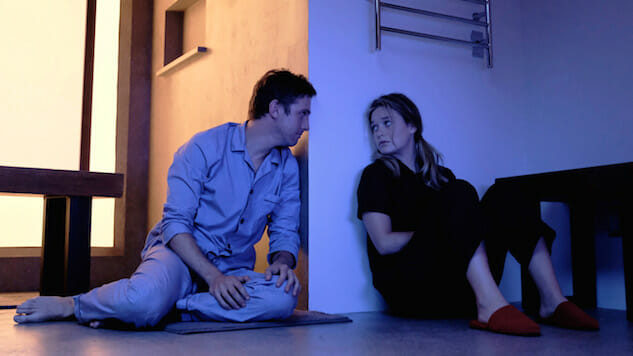Legion: This Is Not Television as Usual
(Episode 1.03)
Michelle Faye/FX
“We’re more than just this.”
The nature of the soul isn’t usual thematic fare for comic book-inspired TV series, but Legion, if you haven’t noticed, isn’t usual in any way. Body swapping, schizophrenia, giant papier-mâché heads and true love don’t come together too often, and joining such desperate elements can be tricky. It’s no wonder, then, that Legion’s voice is becoming a bit inconsistent.
This week, we move even further from the tone set in the series premiere. Gone are the fast pace and quick edits. While bold imagery still features prominently in Legion, the way it’s used and the meaning behind it have evolved. Michael Uppendahl, who directed both tonight’s episode and “Chapter 2,” opts for a smoother, more traditionally cinematic approach. The slow-down is evident and, especially as the series examines more philosophical concepts, necessary. Still, it leaves you with the feeling that Legion can’t quite settle on a style.
That’s not to say that this change is bad. This week’s episode streamlines a lot of last week’s stylistic rough spots, and brings new elements to the table that integrate much more seamlessly with Uppendahl’s measured pace. Where the “Chapter 1” drew attention to David’s (Dan Stevens) mental state with its rapid-fire editing, “Chapter 3” is much more focused on creating a particular mood for the viewer: Its sense of unease seems an extension of the characters’ collective concerns, rather than David’s, specifically.
-

-

-

-

-

-

-

-

-

-

-

-

-

-

-

-

-

-

-

-

-

-

-

-

-

-

-

-

-

-

-

-

-

-

-

-

-

-

-

-








































